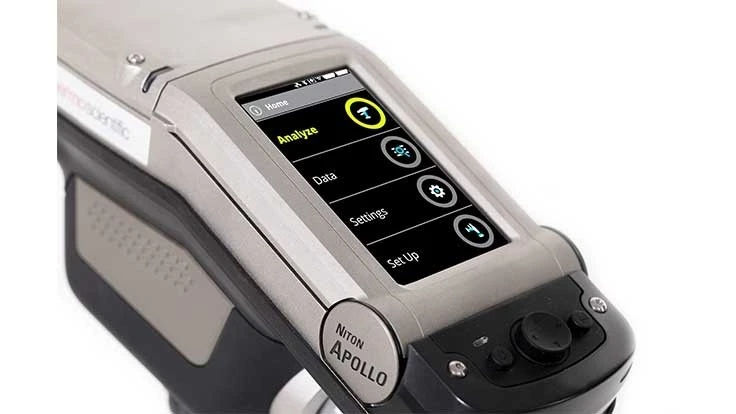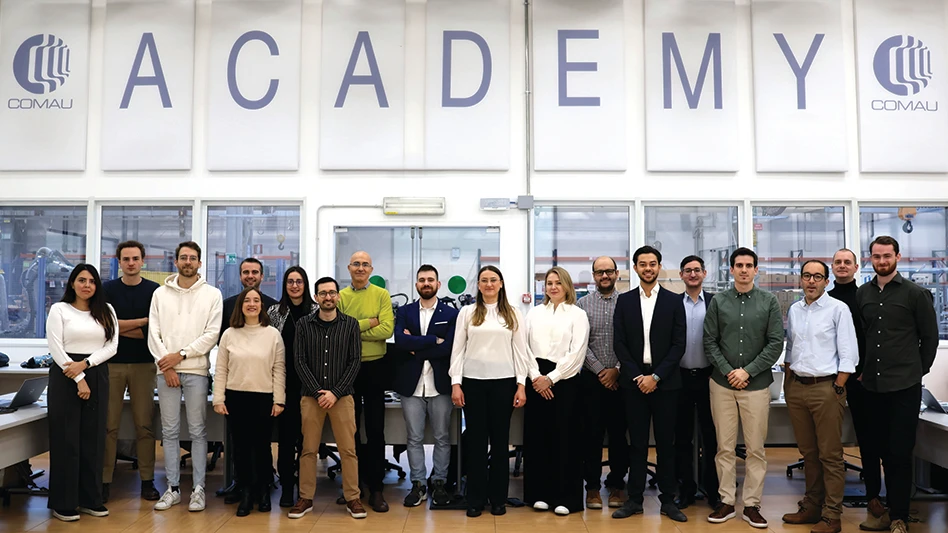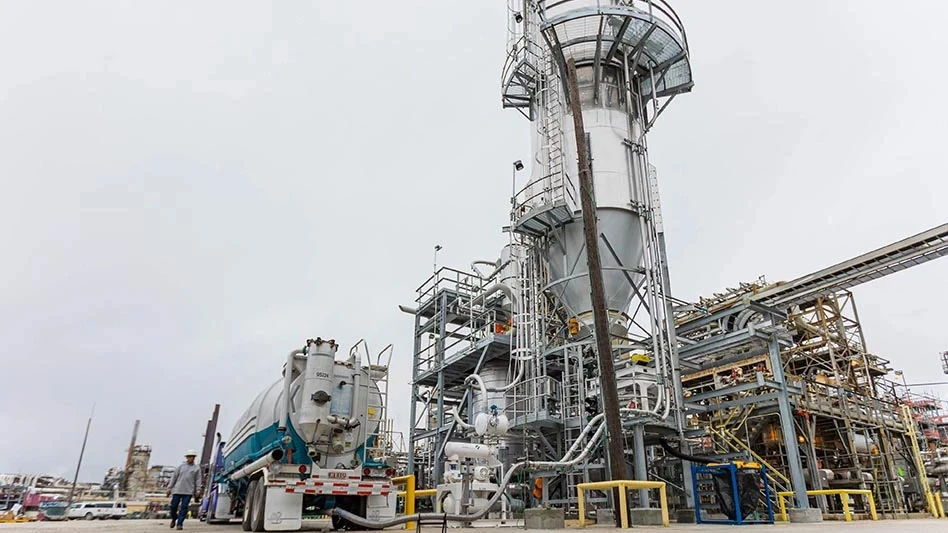
Thermo Fisher Scientific Inc., Tewksbury, Massachusetts, says it has developed the Niton Apollo hand-held laser-induced breakdown spectroscopy (LIBS) analyzer that offers improved speed, increased accuracy and greater mobility. The new hand-held analyzer can be applied by petrochemical plants, fabricators, scrap recyclers and quality control departments, according to a news release from Thermo Fisher.
The lightweight Thermo Scientific Niton Apollo hand-held LIBS analyzer puts advanced technology into the hands of users in the field, enabling them to quickly and more precisely test metals for carbon content in environments where prior technologies were too cumbersome, Thermo Fisher reports in a news release. Results can be returned in as few as 10 seconds for increased speed and productivity. The portability of the Niton Apollo hand-held LIBS analyzer is valuable for operators at complex job sites that have historically maneuvered large equipment into small or difficult spaces to perform analysis.
“Demand for portable, laboratory-grade analysis in the field is growing, and the Niton Apollo LIBS analyzer answers the call by replacing bulky OES pushcarts with an alternative that is designed to be easier to use without sacrificing accuracy,” says Erica Hirsch, vice president and general manager of field and safety instruments at Thermo Fisher Scientific. “We’ve combined high-speed performance and an easy-to-use interface so even non-technical users can benefit from having the advanced capabilities of LIBS technology in the palm of their hand.”
In addition to quantifying carbon concentrations in low alloys and L+H grade steels, the Niton Apollo also more accurately measures aluminum, chromium, copper, iron, manganese, molybdenum, nickel, silicon, titanium, vanadium, tungsten, carbon equivalency and pseudo-elements. According to a news release from Thermo Fisher, the analyzer fulfills an important industry need and complements the line of Thermo Scientific Niton analyzers.
Additional features and benefits of the Niton Apollo LIBS analyzer include:
- third-party validated interlocks designed to keep users and bystanders safe from laser exposure;
- a tapered nose to attain more field coverage of awkward corners, joints and tight welds;
- micro and macro cameras to support sample positioning and record-keeping documentation;
- wireless data transfer, remote operation and software updates enabled by NitonConnect;
- IP54 rating to safeguard against environments containing splashes or dust;
- two hot-swappable Milwaukee batteries with a battery life of three to four hours each;
- tilting, color touchscreen to empower viewing from multiple angles; and
- vivid, easy to use application interface.
Latest from Recycling Today
- Tennessee Tech receives $4.8M grant to improve EV battery recycling
- Don’t Trash Glass partners with glass suppliers in Colorado and Kentucky
- ICCA releases Plastic Additives Database
- EMR adds electric material handler to its Becker, Minnesota, operations
- Greenwave Technology pares back losses in Q3
- Lindner shredders prepare Brazilian plastic for recycling
- China ups steel output, while other nations cut back
- Commentary: Let’s not miss a crucial moment to end plastic pollution





